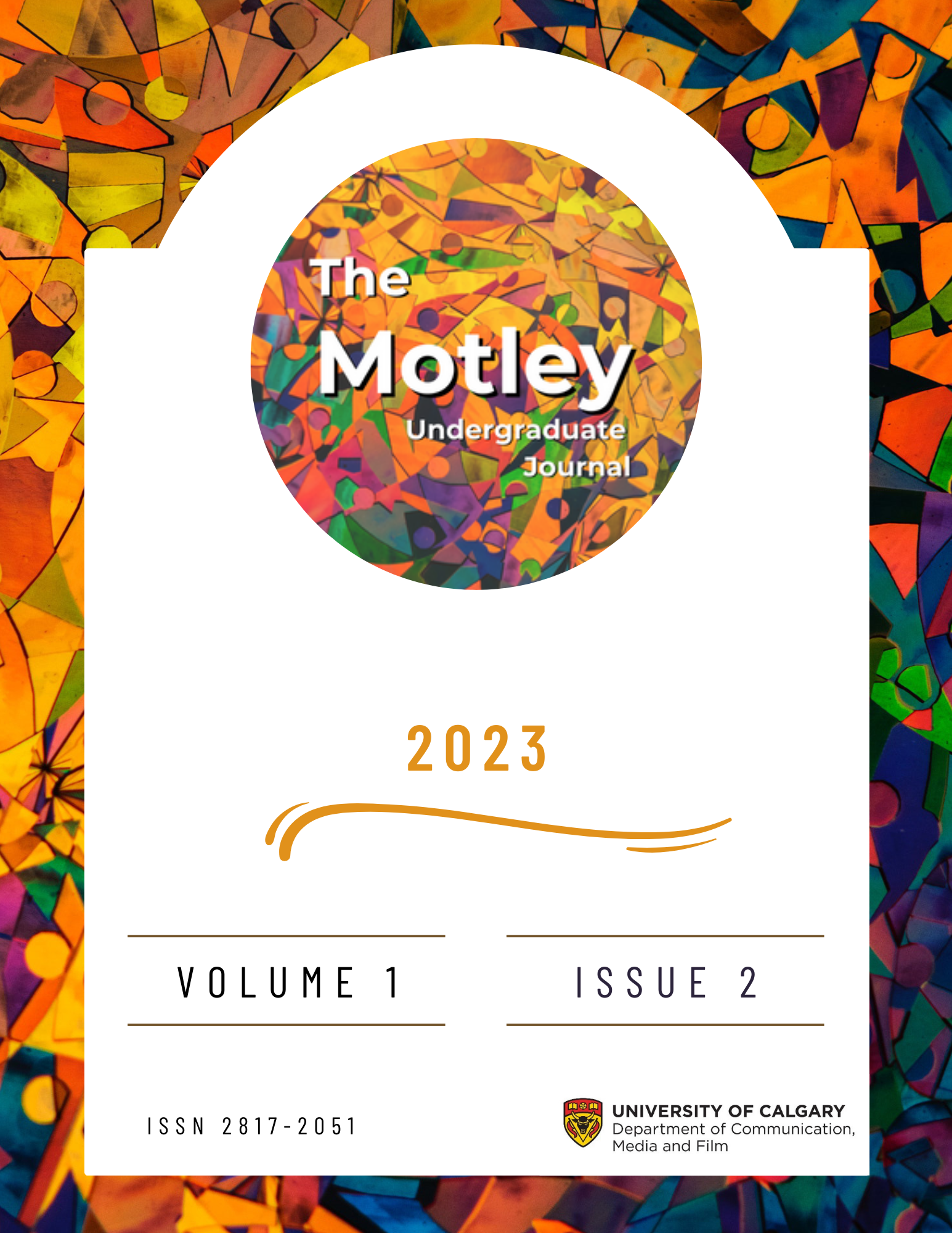I Was There Too
A Visual Ethnography and Analysis on Meaningful Inefficiencies, Data Colonialism, and Digital Parasites Using Facebook Messengers Video-Chat Feature
DOI:
https://doi.org/10.55016/ojs/muj.v1i2.77156Keywords:
affordances, meaningful inefficiency, governmentality, data colonialism, gamification, digital parasitesAbstract
My visual ethnography uses Facebook Messenger’s video-chat feature to “travel” and “be” in different parts of Calgary. In the interwoven analysis, I draw from Bart Cammaerts concept of self-mediation to illustrate how, in many ways, I abided by the intended uses video-chatting offers. Alternatively, I draw on Gordon and Walter’s concept of meaningful inefficiencies to demonstrate how I created a digital experience that was intentionally playful; I disregarded the need to obtain visibility in an online space, thereby challenging notions of governmentality. I reference Ghel and McKelvey’s work on digital parasites to articulate the parasitic nature of this experience, not only between the human-computer relationship, but also between human-human relationships. Moreover, I discuss how I subverted data colonialism at the expense of commodifying the data at the other end of the line. This digital experience contributes to literature about visibility in online spaces in an alternative way; it was not concerned with curating an online persona or acquiring likes and shares. The screenshots illustrate the technological noise that disrupts the call, further positing the intentional playfulness and inefficiency of the experience. The limitations of this experience relate to themes of resistance. While in some ways I resisted data colonialism, the only way to truly resist one’s data from being collected is to create an experience that is offline and untraceable. This experience welcomes the messiness and hybridity of digital platforms and provides an opportunity for purposeful misconnection.
References
Cammaerts, B. (2015). Technologies of self-mediation: affordances and constraints of social media for protest movements. In J. Uldam, J. & A. Vestergaard (Eds.). Civic engagement and social media: political participation beyond protest, (pp. 97-110). Palgrave Macmillan. http://eprints.lse.ac.uk/62089/
Couldry, N. & Mejias, U. A. (2019). Data Colonialism: Rethinking Big Data’s Relation to the Contemporary Subject. Television & New Media, 20(4), 336–349. https://ucalgary.primo.exlibrisgroup.com/permalink/01UCALG_INST/15o3ob6/cdi_crossref_primary_10_1177_1527476418796632
Gehl, R. & McKelvey, F. (2019). Bugging out: darknets as parasites of large-scale media objects. Media, Culture & Society, 41 (2), 219-235. https://ucalgary.primo.exlibrisgroup.com/permalink/01UCALG_INST/15o3ob6/cdi_proquest_journals_2170232287
Gordon, E. & Walter, S. (2016). Meaningful inefficiencies: Resisting the logic of technological efficiency in the design of civic systems. In E. Gordon & P. Mihailidis (Eds.). Civic media: Technology, design, practice. Retrieved from https://ebookcentral-proquest-com.ezproxy.lib.ucalgary.ca/lib/ucalgary-ebooks/reader.action?docID=4573752&ppg=240
Downloads
Published
Issue
Section
License
Copyright (c) 2023 Natasha Bodnarchuk

This work is licensed under a Creative Commons Attribution-ShareAlike 4.0 International License.
Copyright Policy
The Motley Undergraduate Journal is an Open Access article distributed under the terms of the Creative Commons Attribution 4.0 Share-Alike License. Under this license, users are free to share (copy, distribute and transmit) and remix (adapt) the contribution, including for commercial purposes, providing that the original work is properly cited. Under Creative Commons, authors retain copyright in their articles.
Author Self Archiving Policy
Authors are permitted to post their work online in institutional/disciplinary repositories or on their own websites. Pre-print versions posted online should include a citation and link to the final published version in The Motley Undergraduate Journal as soon as the issue is available; post-print versions (including the final publisher's PDF) should include a citation and link to the journal's website.

